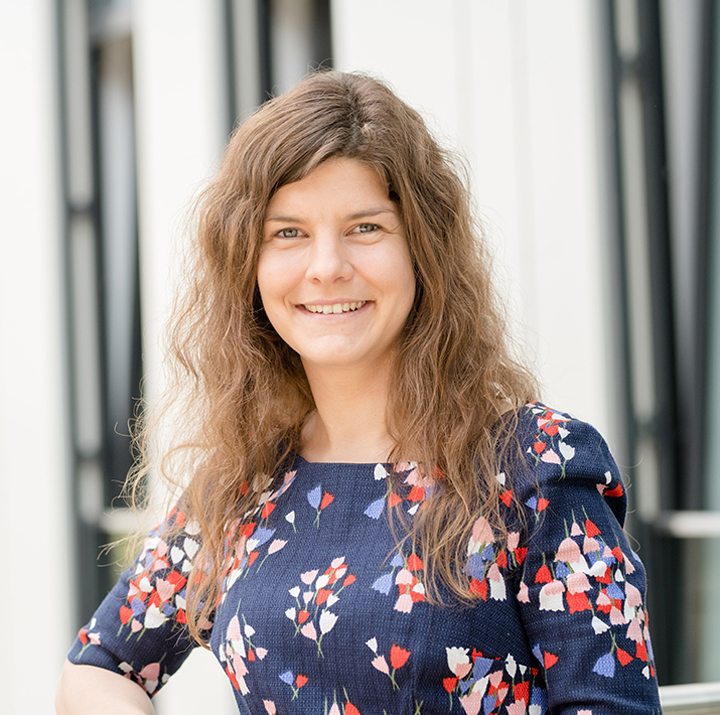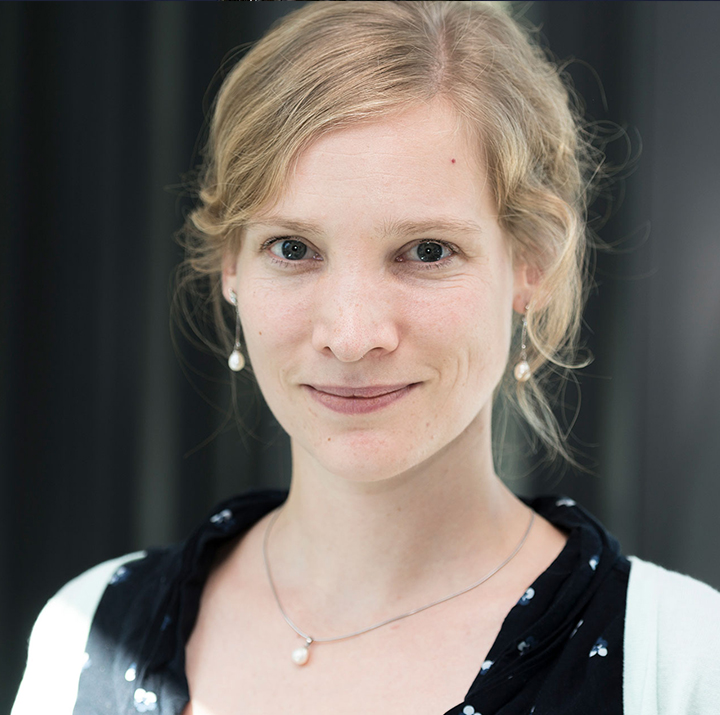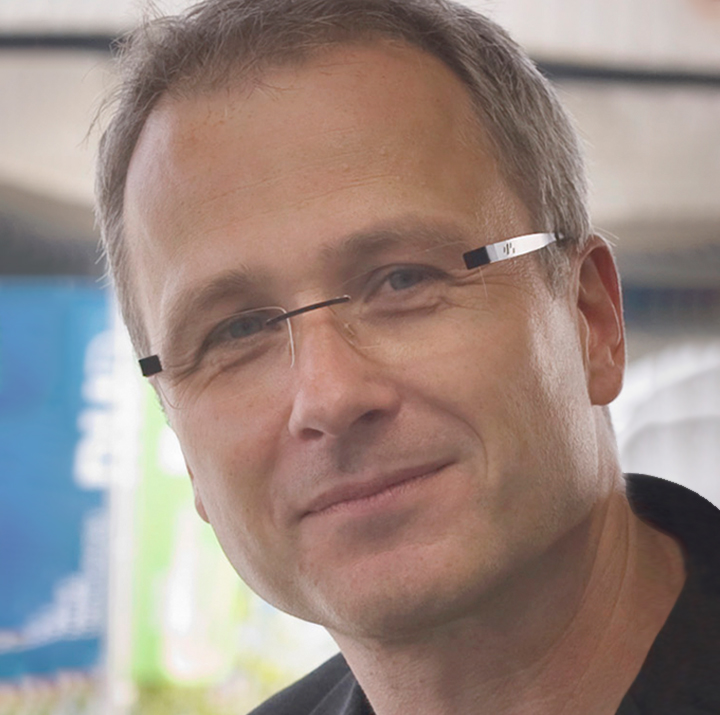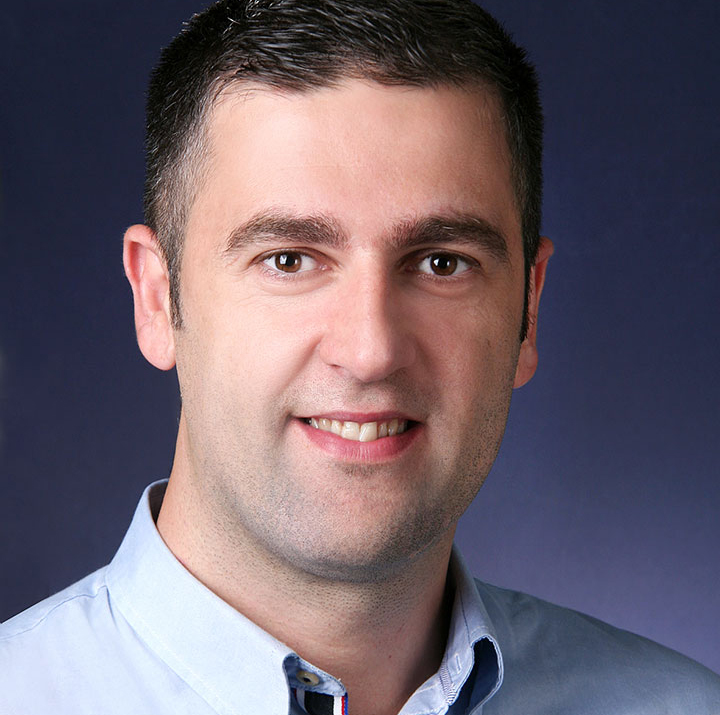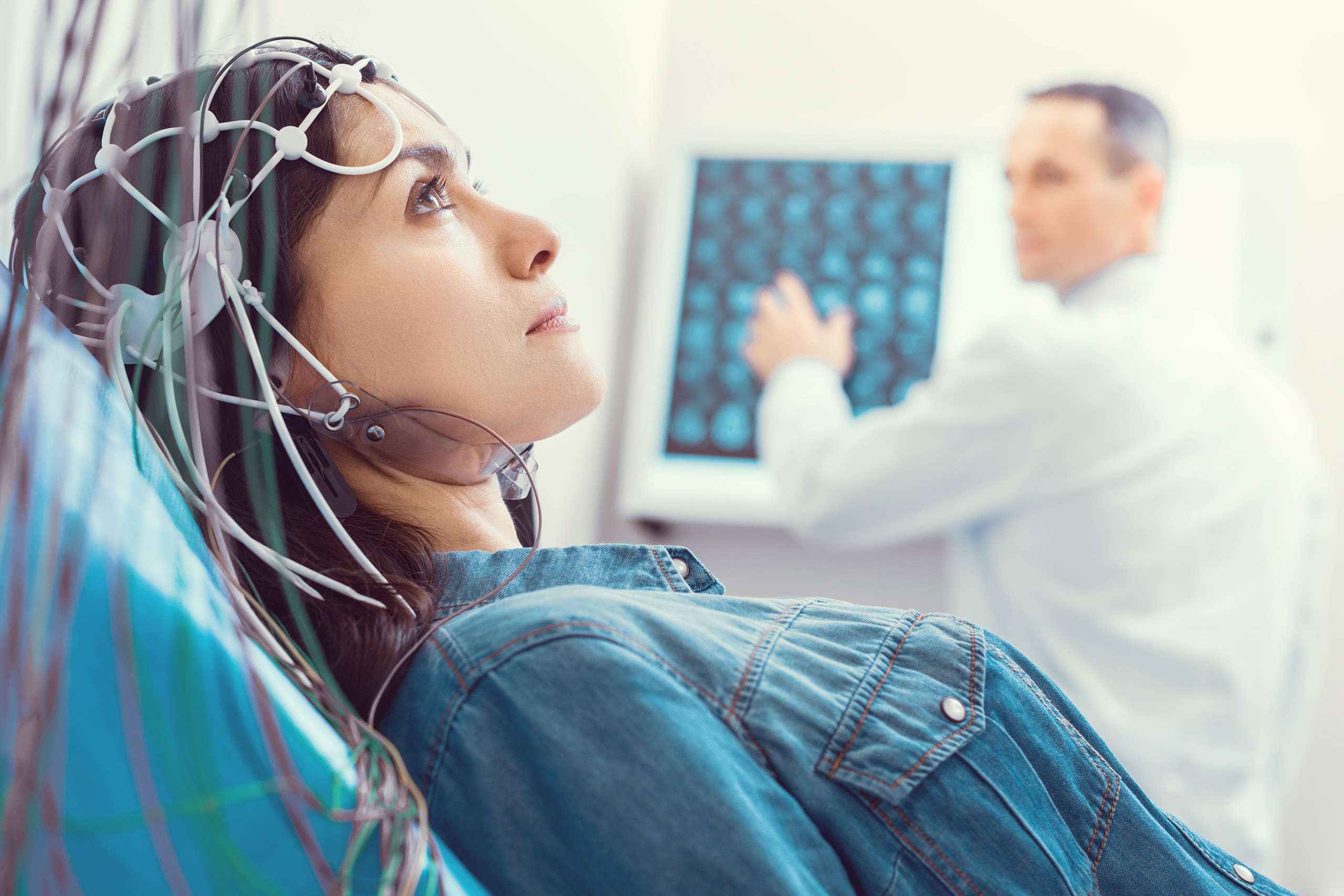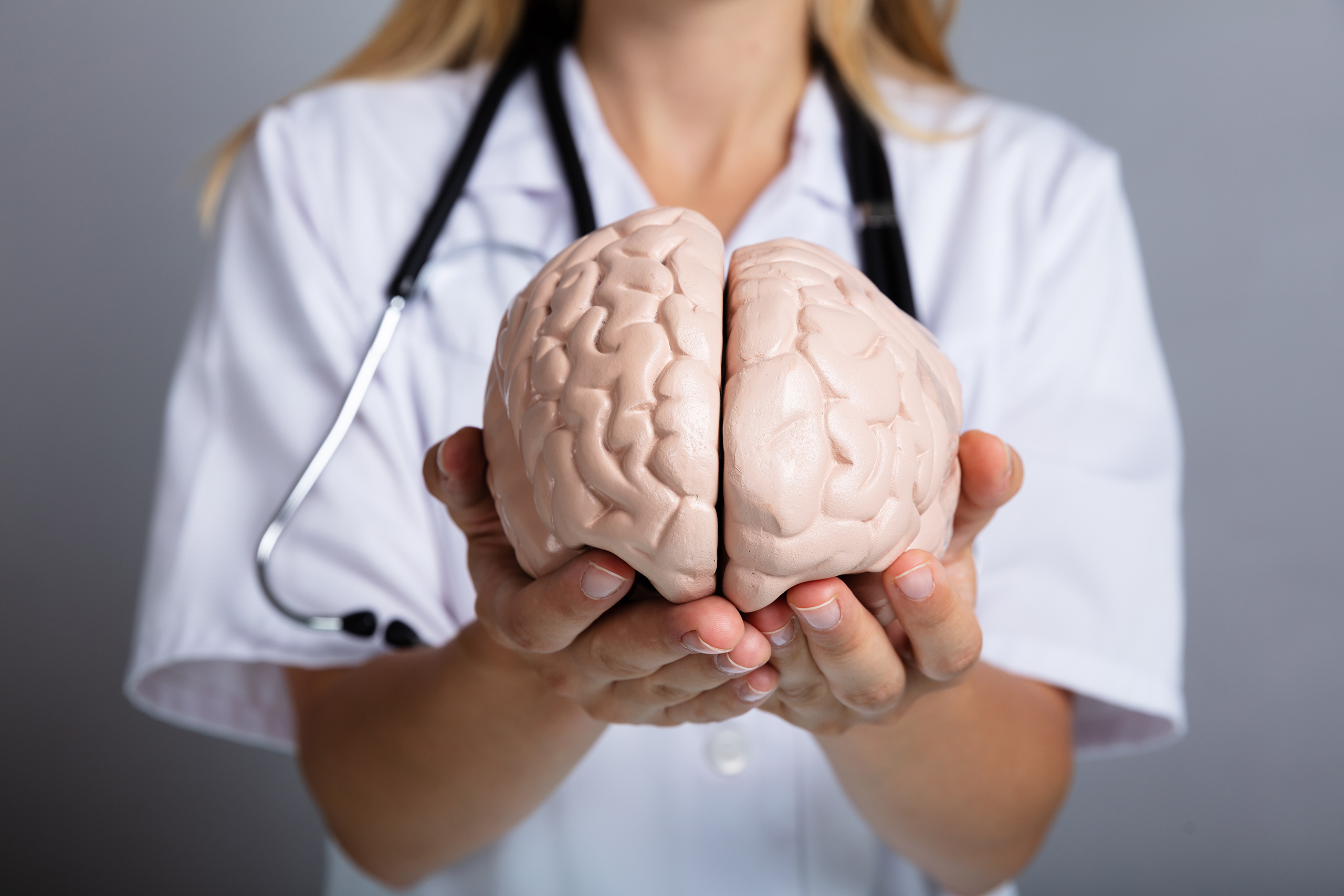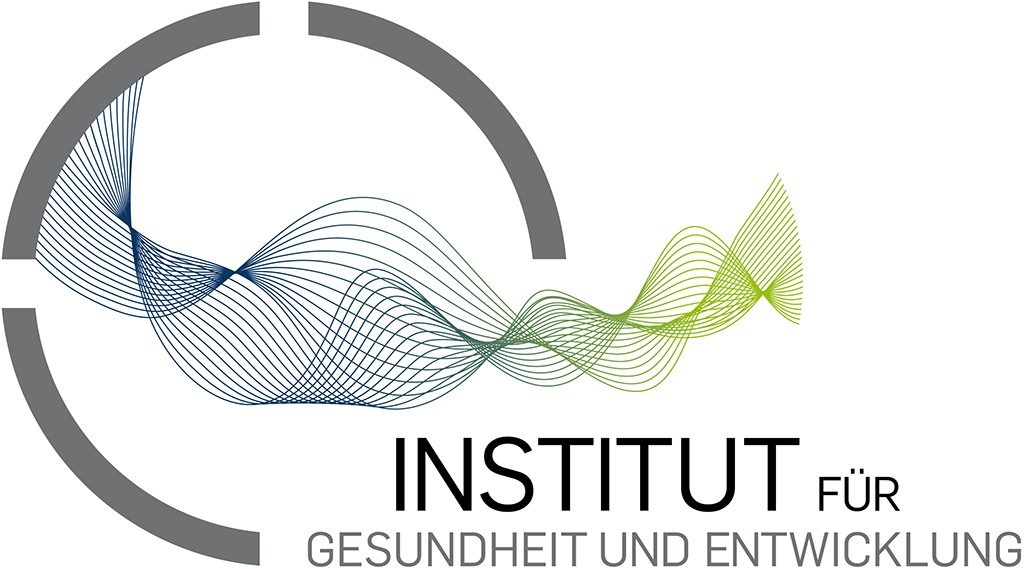
Institut für Gesundheit und Entwicklung
Gesundheit und Entwicklung sind Grundlage für das Wohlergehen von Individuen wie Gesellschaften. Sie beruhen auf dynamischen Prozessen, bei denen psychologische, biologische und soziale Faktoren über die gesamte Lebensspanne in einem komplexen Wechselspiel zusammenwirken. Während über lange Zeit die Förderung körperlicher Gesundheit im Vordergrund stand, gilt heute die Entwicklung und Förderung der psychischen Gesundheit als größte Herausforderung für das Gesundheitswesen der industrialisierten Länder.
Über uns
Das Institut wurde 2015 gegründet, um Gesundheit und Entwicklung mit einem breiten Methodenarsenal von den Grundlagen bis zu den Anwendungen zu erforschen und einen Beitrag zur Gesundheitsförderung zu leisten. Das Institut ist Teil der Fakultät für Psychologie an der Ruhr-Universität Bochum. Es vereint die folgenden Lehrstühle und Arbeitsgruppen:
Klinische Kinder- und Jugendpsychologie
Prof. Dr. Silvia Schneider

Alexander-von-Humboldt-Professur am DZPG-Standort Bochum-Marburg
Prof. Dr. Jürgen Margraf

In das Institut für Gesundheit und Entwicklung sind die folgenden Einrichtungen integriert:
Ziele
Forschung, Lehre und Versorgung des Institutes dienen der nachhaltigen Verbesserung von psychischer Gesundheit und Entwicklung über die gesamte Lebensspanne. Dazu verfolgt das Institut die folgenden Ziele:
- Intra- und interdisziplinäre Zusammenarbeit zum besseren Verständnis der bio-psycho-sozialen Entwicklung von Gesundheit über die gesamte Lebensspanne
- Verbindung von Ursachen- und Therapieforschung für ein besseres Verständnis der Ätiologie psychischer Gesundheit und Krankheit
- Bachelor-, Master- und Promotionsstudium
- Aus-, Fort- und Weiterbildung im Bereich der Psychotherapie und Gesundheitsförderung,
- Strukturierte Förderung des wissenschaftlichen Nachwuchses
- klinisch-therapeutische Angebote über die gesamte Lebensspanne
- Evaluation von Maßnahmen zur Entwicklungsförderung von Kindern und Familien
- Beteiligung an evidenzbasierten Leitlinien zur Gesundheitsförderung / Behandlung von Krankheiten
- Beratung von / Beteiligung an politischen Entscheidungsprozessen im Bereich der Entwicklungs- und Gesundheitsförderung
Die Synergien aus Forschung, Lehre und Anwendung ermöglichen eine optimale Umsetzung der Ziele des Instituts für Gesundheit und Forschung.
Projects
PIs: Axel Schölmerich, Robert Kumsta
The Bochum/Duisburg cohort study is a prospective-longitudinal birth cohort study which was initiated in 1999 when one ton of dioxinated dust leaked from a recycling firm in the south of Duisburg. A total of 232 women and their children have been followed up (at age 12 months, 18 months, 24 months and annually since the age 6-7 years) to investigate the long-term effects of environmental pollutants on child development, including cognitive development, attentional performance, social cognition and child psychiatric disorders. In 2010 the cohort was enlarged and additional 359 mother–child pairs from Bochum were recruited. In the next follow-up phase, we will address the question whether pre- and postnatal exposure to endocrine disrupting chemicals (EDCs) leads to changes in DNA methylation, and whether the effects of exposure to EDCs on developmental outcomes are mediated via epigenetic modifications.
PI: Birgit Leyendecker
Since 2015 a large number of refugee children have arrived in Germany. The federal government aims to facilitate access of these children to German culture and language as early as possible. So-called Bridging Projects have been established to facilitate refugee children’s transition to public daycare centers. The goal of this study is to evaluate the integration of these children both into bridging projects and into daycare centers, to assess their as well as their parents’ psychosocial resources, and to provide support and information for daycare teachers. Methods include interviews, online/offline questionnaires, and observations. The study is funded by the Ministry of Family Affairs of North-Rhine Westfalia (MFKJKS). We cooperate with the University of Paderborn.
PI: Birgit Leyendecker
In an increasingly diverse society, early language development is a focal point of early childhood education and care. Promotion of language development is considered to be most efficient if it is practiced the entire day and integrated into all dyadic and group activities. The objective of SEIKA-NRW is to identify the factors that are most effective in promoting children’s language and overall development. In this project funded by the Ministry of Family Affairs of North-Rhine Westfalia (MFKJKS), we study the impact of additional funding on language and overall development over time in Kitas (daycare centers). The set-up of this study is a natural laboratory. About half of the 9.600 Kitas in this state receive additional funding. The distribution of these financial resources through the regional youth services reveals a very similar overall pattern, yet we find sufficient deviation to permit propensity score matching. This allows us to identify so-called triplets. Each triplet consists of 3 Kitas which are almost identical on roughly 100 variables yet differ in regard to the funding – no additional funding, some additional funding, or generous additional funding. The study started with a cross-sectional sample of 2000 children and will continue with a longitudinal sample of up to 1000 children, their caregivers, mothers and fathers over the course of three years.
PI: Robert Kumsta, Edmund Sonuga-Barke, King´s College London
The ERA study was established in the early 1990s by Professor Sir Michael Rutter at King`s College London, and is currently led by Professor Edmund Sonuga-Barke. Robert Kumsta has been part of the ERA team since 2007. The ERA study is concerned with the developmental trajectories of children who spent their first years in life in extremely depriving Romanian institutions and were then adopted by families in the UK. It is the largest and most comprehensive developmental study of this cohort of children. It has been assessed at ages 4, 6, 11, 15, and 23 years, and has provided seminal insights into the effect of early global deprivation. Results of the latest follow-up have shown a hight degree of persistence of deprivation-related impairments, and lasting effects on brain structure and function.
PI: Robert Kumsta
Adverse childhood experiences can increase susceptibility to mental and physical illness across the life-span. Critically involved in these mechanisms is our stress system, suggested to be both a target for environmental influences and a mediator of the relationship between early-life events and health in adulthood. We are interested in the involved mechanisms: which molecular pathways are targeted by early adversity and what are the down-stream consequences of additional stress exposure? Our goal is to identify molecular pathways targeted by early adverse experience by examining epigenetic alterations and global changes in gene expression patterns in response to experimentally induced psychosocial stress.
PI: Robert Kumsta
Here, we investigate gene expression and DNA methylation patterns in patients with affective disorder and aim to identify transcripts that are predictive of therapy success. We also investigate intenvention-associated changes in DNA methylation and gene expression pattern, and try to identify mRNA expression pattern that distinguish between patients with and without history of childhood trauma.
PI: Jürgen Margraf & Silvia Schneider
The BOOM studies, sponsored by the Alexander von Humboldt Foundation, aim to identify causal protective and risk factors for positive mental health as well as for depression, anxiety and stress. In transcultural, cross-sectional and longitudinal studies, potentially significant predictors are examined with a combination of epidemiological, experimental, psychological and intervention approaches. So far, cross-sectional and first longitudinal data of student and representative samples from Germany, Russia, China and the United States have been collected (N ≈ 40 000), data collection in Pakistan is in preparation. The various methodological approaches enable the investigation of the influence of different research methods and provide information on the cross-cultural invariance of the investigated constructs and instruments. Initial results show that life satisfaction, resilience, optimism, happiness and social support have a salutogenic effect across cultures and at the same time act as a buffer against negative effects of stress and psychopathological symptoms. In addition, significant transcultural differences have been found: in Germany psychological symptoms decrease with age, while they show an increase in Russia. Pronounced differences are also found in personal values, which are significantly related to mental health.
PI: Silvia Schneider & Tanja Hechler
This study funded by the German Research Foundation (DFG) examines the defensive responses in children and adolescents with chronic headache and abdominal pain according to the Threat Imminence Model. That is, in children with chronic pain disorders, interoceptive sensations accompanying the pain experience may become conditioned stimuli which elicit conditioned defensive responses, leading to aggravated pain, disability, and anxious apprehension followed by avoidance behavior. The study is a cooperation with Prof. Dr. Tanja Hechler, Clinical Child and Adolescent Psychology and Psychotherapy, University of Trier. Data collection is conducted at the RUB Mental Health Research and Treatment Center (MHRTC), where a total of 150 adolescents aged 11-18 years will undergo a broad psychophysiological assessment protocol using a state-of-the-art multimodal assessment approach consisting of self-report, peripheral physiological reactivity, including skin conductance level, heart rate and startle potentiation.
PI: Silvia Schneider & Simone Munsch
Exposure to thin ideals via mass media plays an important role in the development and maintenance of eating disorders, low self-esteem, depressive or anxious feelings in young females. This study funded by the German Research Foundation (DFG), investigates the effect of exposure to mass media on the satisfaction with one’s own body and body image in young women with eating disorders. The multi-site cross- and longitudinal experimental trial is a cooperation with Prof. Dr. Simone Munsch, Clinical Psychology and Psychotherapy, Université de Fribourg, Switzerland. The ongoing data collection of 250 female participants is taking place in multiple centers in Switzerland and Germany. Understanding the role of cognitive distortions and emotion regulation in eating disorders and other mental disorders will help to specify interventions aiming at the restructuring of irrational beliefs about eating and shape and to further develop interventions to train specific components of emotion regulation.
PI: Silvia Schneider & Jürgen Margraf
Core of the Federal Ministry of Education and Research (BMBF) sponsored research consortium are two clinical studies investigating extinction learning in children and adults. The multi-center randomized therapy study with children with anxiety disorders, coordinated and managed at the RUB Mental Health Research and Treatment Center (MHRTC), aims to clarify how and to which extent extinction learning within exposure therapy can be improved when parents are integrated into the psychotherapy treatment of their child. A total of 400 children between 8 to 14 years of age with an anxiety disorder are examined at the centers of Bochum, Dresden, Marburg and Würzburg.
PI: Jürgen Margraf & Saskia Scholten
Reliable information about the advantages but also risks and unwanted effects of psychotherapy should be accessible to the general public. The aim of this study funded by the Alexander von Humboldt Foundation is to gather information from anonymous reports, organize and publish the information in order to enhance the knowledge of risks and unwanted effects of psychotherapy. A website (www.psychotherapie-nebenwirkungen.de) where patients as well as therapists can anonymously report unwanted effects will go online shortly. Additionally, the user can complete an online version of the Inventory for the Assessment of Negative Effects in Psychotherapy (Inventar zur Erfassung negativer Effekte in der Psychotherapie (INEP); Ladwig, Rief, & Nestoriuc, 2014). The results will be visualized and presented online. Additionally, the INEP was assessed in a clinical reference sample at the RUB Research and Treatment Center for Mental Health to compare data with the results of the website. Finally, patient malpractice claims to the Chamber of Psychotherapy in North Rhein–Westphalia were analyzed qualitatively and quantitatively for an overview of common malpractice claims
PI: Marcella Woud, Simon Blackwell & Jürgen Margraf
This research project investigates the modification of cognitive biases and other aspects of automatic information processing via a specially developed training method (Cognitive Bias Modification, CBM; Attention Bias Modification, Interpretation Bias Modification). The effects of these training paradigms will be investigated in patients suffering from Posttraumatic Stress Disorder (PTSD), Panic Disorder (PD), and rumination (chronic brooding), as well as in inpatients receiving psychiatric treatment and non-clinical analog samples. Financial support is provided via the German Research Foundation (DFG), Alexander von Humboldt Foundation, and the Daimler and Benz Foundation.
PI: Jürgen Margraf & Ruth Von Brachel
Remarkably little information is available on the long-term success of psychotherapy. Studies usually cover a period of 6 months to a maximum of two years, which is too short considering the relapse rates of mental disorders and the occurrence of critical life events as a risk for relapse. Therefore, 5 to 20 years after the end of therapy, former patients of the adult outpatient clinics of the RUB Mental Health Research and Treatment Center were invited for follow-up assessment. The project has three aims. First, we want to examine the long-term success of treatment on different outcome measures such as mental health, stress symptoms and quality of life in a heterogeneous sample of patients. Second, we strive to identify predictors of long-term treatment success. Third, we want to determine how successful or unsuccessful therapies are in the context of their impact on patients’ relatives during the above-named interval. Until now, about 120 former patients and 35 partners of patients have been recruited for the study. The study is funded by the Alexander von Humboldt Foundation.
PI: Jochen Gensichen (Jena) & Jürgen Margraf
The data collection and analysis of the Jena-Paradies study (funded by German Federal Ministry of Education and Research, BMBF) has been completed. In 73 general practices, the practice team (general practitioner and health care assistant) treated a total of 419 adult patients with panic disorder or agoraphobia. The intervention group received a combination of practice-team supported psychoeducation and self-directed exposure training. In the control group, patients received usual care (TAU: "Treatment As Usual"). The primary measure of improvement was the Beck Anxiety Inventory (BAI) at baseline and at 6- and 12-month follow-up assessments. With mixed linear models (controlled for practices as a cluster variable), 230 patients from 36 practices in the intervention group and 189 patients from 37 practices in the control group were compared. The improvements in the BAI were significantly greater in the intervention group (allocation-by-time interaction, P = 0.008). Although the differential treatment effects were not substantial (at 12-month follow-up assessment 4 BAI points difference; Cohen f2 = 0.012), this very low-cost minimal intervention is of practical clinical importance.
PI: Jürgen Margraf, Andre Wannemüller, Robert Kumsta
This project, sponsored by the Alexander von Humboldt Foundation, develops new approaches for the simultaneous treatment of large groups of anxious patients ("very large group treatment protocol"). The aim of the project is to evaluate the feasibility and effectiveness of the RUB large group intervention program in the treatment of spider fear, dental anxiety and blood-injury-injection phobia. Furthermore, we nvestigate the association between variation in candidate genes but also Polygenic Scores with treatment outcome as well with variables of a conditioning paradigm implemented in a large group design. The program provides an efficient method for fast collection of treatment data for basic studies.
PI: Jürgen Margraf & Saskia Scholten
Funded by the Alexander von Humboldt Foundation, this study with the working title “Justice Study” investigated the relationship between macrosocial variables and mental distress in a cross-cultural comparison across eight countries. The macrosocial variables justice, freedom, wealth and social connectedness were assessed objectively and subjectively. For objective assessment, we used indicators that exist at the country level and which operationalize macrosocial variables as aggregated indices. For the subjective evaluation of macrosocial variables, representative samples were interviewed in France, Germany, Poland, Russia, Spain, Sweden, the UK and the USA. Mental distress was assessed in all countries and cross-cultural measurement invariance was tested for the Depression, Anxiety and Stress Scales (DASS).
PI: Julia Velten & Jürgen Margraf
Since 2013, several sexual psychological research projects under the title "Venus Study: Understanding Female Sexuality" are conducted at RUB. The aim of the Venus studies is the scientific study of sexual behavior, sexual problems and personality variables especially in women. In 2015, several projects were completed and newly designed and started: Venus Online (Internet-based survey on female sexuality with over 2,200 women), Venus Laboratory (sexual psychological laboratory study with 72 participants on predictors of sexual arousal of women) and Venus Duo (population-representative sample of nearly 1,000 couples across Germany on couple-related influences on sexual satisfaction and relationship satisfaction). The Venus studies are supported by the Alexander Humboldt Foundation.
PI: Sabine Seehagen & Carolin Konrad, in collaboration with Jane Herbert (University of Wollongong) & Rachel Barr (Georgetown University).
Recent developmental research has shown that sleep facilitates memory processing early in life. However, it is less clear which further cognitive processes might benefit from sleep. In addition, there might be aspects of an infant’s everyday experiences that help or hinder sleep’s effects on cognition. Specifically, the use of screen media might interact with effects of sleep on early cognition. The overall aim of this project is to test causal relations between media use, sleep and cognition in the second year of life. Overall, the findings of the project will help reveal how basic everyday experiences – sleep, media use, infant-parent interactions – shape cognitive development. This study is funded by the DFG.
PI: Sabine Seehagen
The internal state of a person (e.g., mood, arousal) is well known to interact with cognitive processing. For example, being in a good versus bad mood can influence which aspects of a situation a person learns about. Specific cognitive processes are often studied in isolation in developmental research such that these interactions have received little attention. Using experimental designs, the overall aim of this project is to gain a better understanding of how learning, memory, and further cognitive processes occur in the context of internal states in infancy.
PI: Maike Luhmann
Why do some events lead to change in psychological outcomes others do not? In this one-year, five-wave prospective longitudinal study of emerging adults, we examined how characteristics of major life events (e.g., external control, valence) are associated with changes in psychological outcomes such as subjective well-being, loneliness, and personality traits. This project is part of the Pathways to Character project funded by the John T. Templeton Foundation.
PIs: Maike Luhmann & Jürgen Margraf
This project is part of the BMBF funded consortium IMPROVE-MH (PI: Silvia Schneider). The aims of this project are (1) establishing the validity and measurement invariance of existing self-report measures of mental health in refugee populations across cultural subgroups and across time and (2) developing and validating new measurement methods based on ecological momentary assessment that facilitate and enhance the culturally sensitive assessment of mental health in refugee populations.
PI: Armin Zlomuzica
Cognitive theories implicate that an enhanced retrieval of negatively valenced experiences contributes to the maintenance of dysfunctional beliefs, maladaptive emotional responses and avoidance behaviour. Better understanding of how patients with anxiety disorders store and retrieve personal experiences in real-life and therapy setting is thus of high importance for the treatment of anxiety disorders. In this project we will uncover the impact of anxiety on the memory for different features of retrospective episodic memory, episodic future thinking and mental time travel. We will use different experimental psychopathology models of anxiety and extend our investigations to populations with clinical anxiety to reveal boundaries between adaptive and maladaptive effects of anxiety on episodic memory functions. These studies are supported by the German Research Foundation (DFG).
PI: Armin Zlomuzica
Establishing treatment regimens to enhance generalization of exposure effects to a set of fear stimuli or comorbid anxieties would be of high value for research and routine care. The main objective of the research project is to examine the process of generalization in the context of exposure. We will conduct a number of studies to explore whether a transfer of exposure-induced benefit to untreated stimuli (which differ along gradients of perceptual and non-perceptual similarity) can be observed. The work will, for the first time, provide evidence for possible generalization of corrective experiences obtained during therapy to stimuli and situations which share distinct and overlapping features. These studies are supported by the German Research Foundation (DFG).
PI: Mar Rus Calafell
In our current research project, we are dealing with mental health of young people. Despite similar challenges and tasks, some adolescents develop mental health issues, while others show a certain mental stability. If difficulties arise, typically they already occur during the school years. The aim of our project is both to find out more about the factors that promote such mental health issues as well as to explore the factors that are related to mental stability. We also want to look at the progression of mental health over time. If that begins to falter, we can derive information on how and when to intervene to improve the mental health of young people. In the light of the current Corona pandemic, we are convinced that it is the right time to better understand young people's mental health and as researchers, we are asked to help young people with our research findings.
For that purpose, we are conducting a short questionnaire study among students from grades 8 to 12, i.e., aged 13 to 18. Our research team is directly on site in the cooperating schools and carries out the tests together with the young people. The students' emotional state, their life experiences and circumstances as well as how they deal with difficult situations are assessed via questionnaire. The first measurement took place in October/November of 2021. The procedure will be repeated six months, one year and two years later in order to record potential changes.
PIs: Maike Luhmann, Ricarda Steinmayr (TU Dortmund), Marcus Roth (University Duisburg-Essen)
This three-wave longitudinal study, funded by MERCUR (Mercator Research Center Ruhr), aims to assess the development and determinants of subjective well-being (SWB) in young adolescents, which has been a neglected research topic so far. The study will investigate the development of SWB as well as potentially associated factors such as self-concepts, personality, school attitudes, and test anxiety, using a comprehensive questionnaire administered at regular intervals over a one-year period. The primary objective is to identify which factors pose a risk to well-being and which factors may enhance or protect it. Ultimately, the study results will serve as a basis for the development of prevention and intervention programs aimed at improving the mental health and well-being of adolescents.




